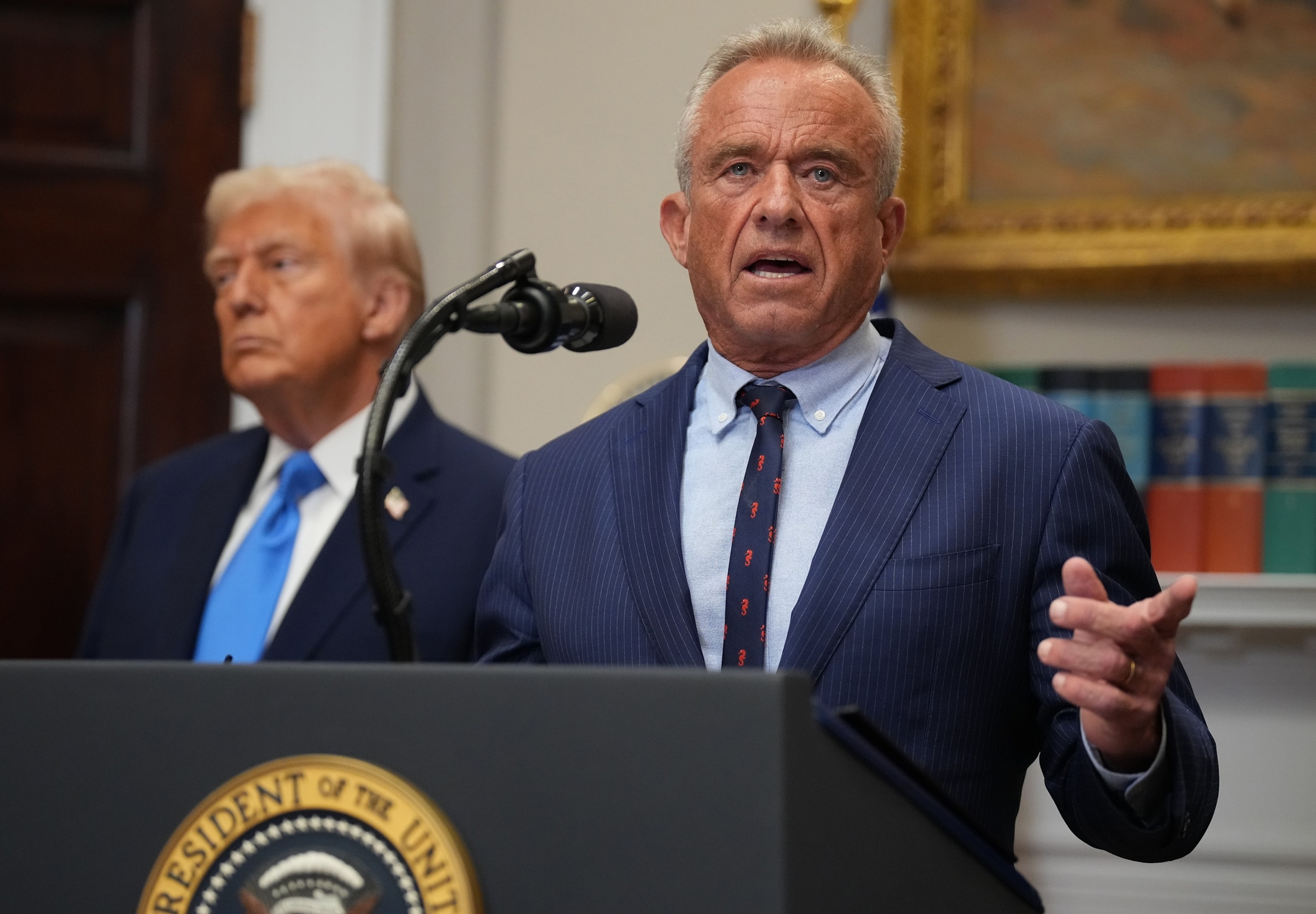The Trump administration stated on Monday that the use of Tylenol during pregnancy may be linked to an increased risk of autism.
In a press conference at the White House, President Donald Trump said the Food and Drug Administration will begin notifying physicians immediately that it is “strongly recommending that women limit Tylenol use during pregnancy unless medically necessary.”
“They are strongly recommending that women limit Tylenol use during pregnancy unless medically necessary,” Trump said. “That’s, for instance, in cases of extremely high fever.”
Studies on this question have not shown a direct cause and effect. Some studies point to a possible link, but major medical groups have evaluated the evidence and continue to recommend acetaminophen as the safest painkiller during pregnancy.
President Donald Trump alongside Secretary of Health and Human Services Robert F. Kennedy Jr. and Medicare and Medicaid Administrator Mehmet Oz speaks about autism at the White House in Washington, Sept. 22, 2025.
Saul Loeb/AFP via Getty Images
Trump and his health officials said that the FDA would update the label for acetaminophen, commonly known as Tylenol, to “reflect potential benefits in reducing some autism symptoms.”
In a statement, Dr. Steven Fleischman, president of the American College of Obstetricians and Gynecologists (ACOG), said the medical group continues to recommend acetaminophen as the safest painkiller during pregnancy.
“Suggestions that acetaminophen use in pregnancy causes autism are not only highly concerning to clinicians but also irresponsible when considering the harmful and confusing message they send to pregnant patients, including those who may need to rely on this beneficial medicine during pregnancy,” Fleischman said.
“Today’s announcement by HHS is not backed by the full body of scientific evidence and dangerously simplifies the many and complex causes of neurologic challenges in children. It is highly unsettling that our federal health agencies are willing to make an announcement that will affect the health and well-being of millions of people without the backing of reliable data,” the statement continued.
In a statement from Kenvue, the maker of Tylenol, on Sunday, the company said it believes research shows that acetaminophen does not cause autism.
“We strongly disagree with any suggestion otherwise and are deeply concerned with the health risk this poses for expecting mothers,” the statement read. “Acetaminophen is the safest pain reliever option for pregnant women as needed throughout their entire pregnancy. Without it, women face dangerous choices: suffer through conditions like fever that are potentially harmful to both mom and baby or use riskier alternatives.

Secretary of Health and Human Services Robert F. Kennedy Jr. delivers remarks on autism while President Donald Trump listens, at the White House, in Washington, September 22, 2025.
Andrew Harnik/Getty Images
The administration also announced on Monday that it is starting an approval process for a drug called leucovorin, despite limited evidence of benefit.
Leucovorin, which is typically used as part of cancer care, has shown early promise in a handful of small studies suggesting it may help the symptoms of some children with autism.
Typically, more robust studies would be required for a new FDA approval. Doctors say there could be some promise for this drug, but caution that more research is needed to understand how much — or even whether — this drug helps certain children.
In the press release, GSK, the maker of the drug, did not mention autism by name but said it is starting a process to expand the approval.
During the press conference on Monday, Trump and Health and Human Services Secretary Robert F. Kennedy Jr. also suggested the childhood vaccine schedule could contribute to autism, contradicting years of research that has found no link between the two.
This is a developing story. Please check back for updates.

